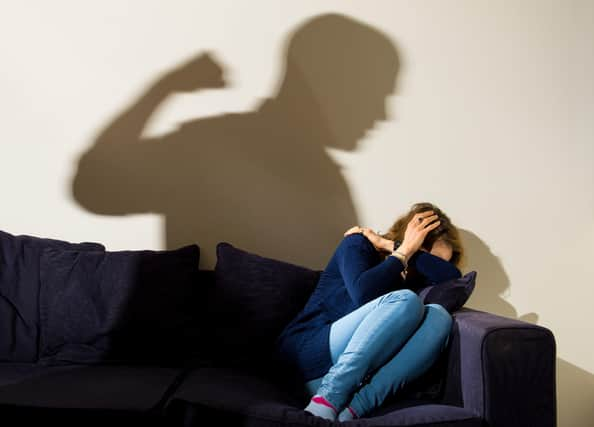PSNI receives almost 2,000 domestic abuse calls during three weeks of coronavirus pandemic


Tough new laws are being introduced at the Stormont Assembly and the worst perpetrators will face up to 14 years in prison.
Temporary lockdown restrictions aimed at curbing the disease’s spread are forcing people to spend more time at home.
Advertisement
Hide AdAdvertisement
Hide AdJustice Minister Naomi Long said: “It is important that our response is not temporary or fleeting as domestic abuse is neither.”
From April 1 to 21, the PSNI received 1,919 domestic abuse calls.
Under the draft law, a person convicted in a crown court of the worst offending faces up to 14 years in prison.
Mrs Long said the most serious cases were more likely to involve a course of behaviour including psychological and physical abuse.
Advertisement
Hide AdAdvertisement
Hide AdThe Domestic Abuse and Family Proceedings Bill includes the creation of a new domestic abuse offence, allowing for heavier sentences where children are involved, and a stiffening of penalties for any offence where domestic abuse is associated with it.
Mrs Long said: “The need for this legislation has never been more clear.
“Abusers are wielding power over their victims because it is not an offence to do so.
“Now is our chance to change this by criminalising psychological and emotionally harmful behaviour, sending out a clear message that this behaviour will not be tolerated and that perpetrators will be punished.”
Advertisement
Hide AdAdvertisement
Hide AdShe said the effect on daily life could be devastating when home was no longer a safe place.
“The sad truth is that thousands of people across Northern Ireland wake every morning feeling frightened, controlled, isolated, degraded, humiliated or ashamed, in their own homes.
“They are always on their guard, waiting for the next attack, whether that be physical or psychological.
“Tragically, their abuser is someone they should be able to trust: a partner, a close family member, the person that sits across from them at the dinner table.”
Advertisement
Hide AdAdvertisement
Hide AdShe urged those in danger to call or email helplines, contact a friend or the police if necessary.
Detective Superintendent Anthony McNally said spending more time at home can create potentially stressful situations.
He added: “As a police service, we want victims of domestic abuse to know we are still here to help you, despite the pandemic.”